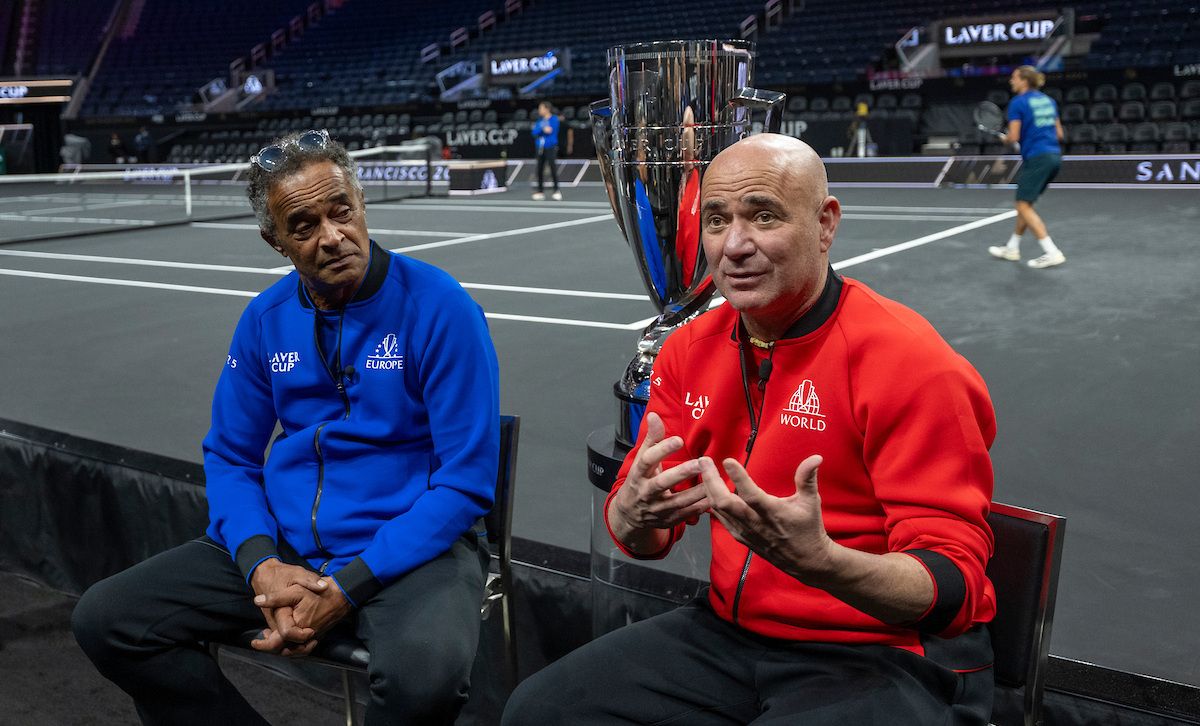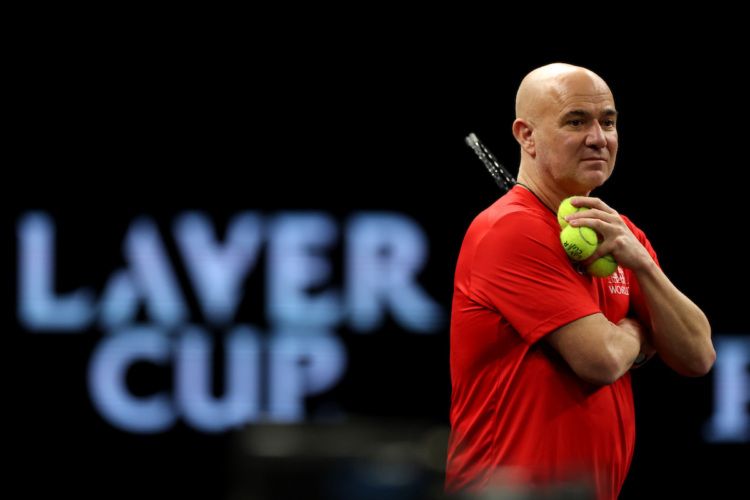
On Thursday, before suiting up for the Laver Cup Opening Night Gala, Captains Yannick Noah (Team Europe) and Andre Agassi (Team World) revealed their player lineups in a blind exchange of cards for Day 1 of the competition in San Francisco.
Friday’s day session will open with Casper Ruud (Europe) vs Reilly Opelka (World), followed by Jakub Mensik (Europe) vs Alex Michelsen (World). The night session features Flavio Cobolli (Europe) vs Joao Fonseca (World) and a doubles clash between Carlos Alcaraz/Jakub Mensik (Europe) and Taylor Fritz/Alex Michelsen (World). Each match on Friday is worth one precious point, with teams racing to reach 13 points across three days and five sessions.
It’s a pivotal stage of the competition, one that has often set the tone for the battles to follow. In the first four editions – Prague (2017), Chicago (2018), Geneva (2019) and Boston (2021) – Team Europe seized commanding Day 1 leads. But the script flipped at Laver Cup London 2022, when Team World’s De Minaur stunned local hero Andy Murray at the O2. After the Friday night doubles, the leaderboard stood level at 2–2, signalling a shift in momentum.
Home team advantage
From Day 2 onwards, lineup strategy becomes even more critical. As hosts in San Francisco, Team World holds the right to decide whether to reveal their lineup first on Saturday or defer until Sunday. If they choose to show their hand on Saturday, Team Europe then has 30 minutes to adjust and nominate players. On Sunday, the process would flip, with Team Europe declaring first and Team World responding within 30 minutes.
Former Team World Vice Captain Patrick McEnroe explained how the strategy has played out in the past. “When it came to deciding whether or not to match the lineup on a Saturday or Sunday, it came down to what we thought our better chances would be on Day 1,” said McEnroe, who alongside his brother Captain John McEnroe guided Team World for the first seven years of the Laver Cup, winning in London and Vancouver (2023).

As underdogs, the McEnroe’s sought every edge to keep the competition close going into Sunday, when matches are worth three points. “If we thought that we wanted to get some points going into Sunday, not being too far behind, then we would choose to match on Saturday, so that we would have a better chance to win points on Saturday,” he explained.
By contrast, Europe “pretty much always elected to match on Sunday,” McEnroe noted. “Normally, they (Europe) have the stronger team, at least in terms of rankings, so some of it depends on what the captains think are their overall chances,” he said.
But he cautioned that the timing of this decision is critical. “If you match on Sunday, but you’re so far behind that it doesn’t matter, then you’re throwing that home field advantage out the window. If there are any specific matchups, head-to-head wise, that we really wanted to see happen, that could impact our decision-making process as well. Usually that would be on the Saturday.”
Timing is everything
Under Laver Cup rules, the team nominating first must do so within 30 minutes of the Night Session ending on Friday or Saturday. The second team then has 30 minutes to submit their “matching” lineup. Every player in the six-man squad must contest at least one singles match in the first two days. At least four of the six players must play doubles and no doubles combination is played more than once, unless for the Decider on Day 3 if points are 12:12.
“I know who his lineup’s going to be,” Captain Andre Agassi joked to Noah in a lighter moment between practice sessions. “It is strategic, but it’s also a lottery in some respects too,” he added. “The pressure builds until Sunday, so we’ve got to stay in the fight as long as possible and anything can happen.”
Learn more about the Laver Cup format